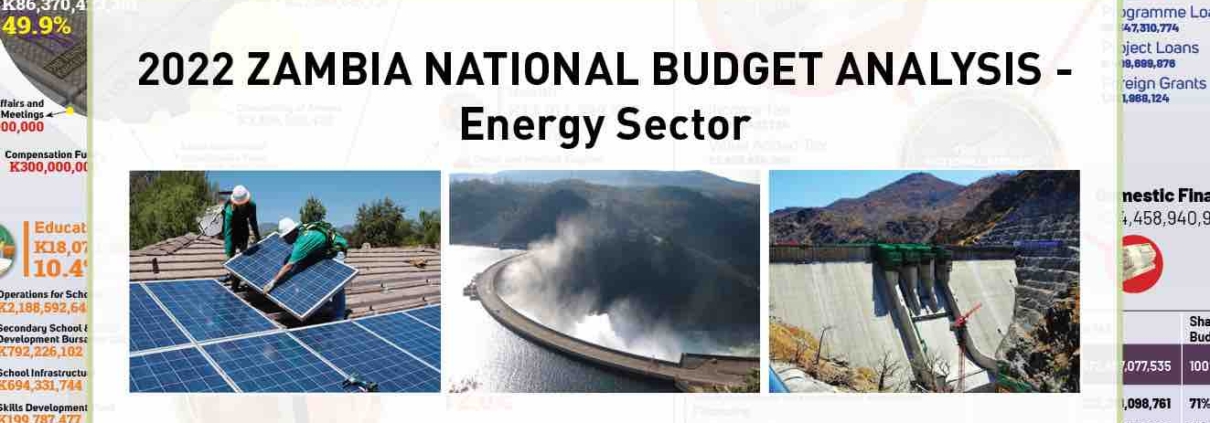Government seeks to shift resources to higher productivity lines. The energy sector is key to the economic transformation agenda. Challenges have been identified in the sector, particularly in relation to electricity and petroleum. Electricity tariffs are not cost reflective and this has contributed to low private sector involvement. In relation to petroleum, procurement of petroleum products is fraught with inefficiency and uneconomical prices.
Government has proposed implementation of a Renewable Energy Investment Plan through which it expects to improve the current energy mix. Zambia has been struggling to generate enough electricity to meet the growing demand as the country develops. Diversification of power sources is now unavoidable as electricity supply is still vulnerable to seasonal rain patterns that are largely influenced by climate change. Further, Government’s fiscal position is shaky in view of the high debt levels and by implication this means that there can be no immediate investment in improving capacity.
PMRC has previously made the case for independent power producers in the energy sector in a research report on Independent Power Producers (IPP) and Power Sector Reform (2018), wherein the following proposals were made:
- A nuanced approach to power sector reform, following re-assessment of proposed reforms.
- A hybrid model should be adopted with public and private actors co-existing in generation.
- Attention should be paid to the technical characteristics of the system, institutional capacity and transaction costs of the reforms.
- Reform in the sector is a political process where public acceptance is extremely important along with the need to create new benefits that can be used to compensate groups or institutions that will lose from the proposed reforms.
- We need to focus on the conditions needed for increased investment in the power sector.
- Zambia is facing two challenges: structural capacity deficit and high electricity tariffs. Because electricity prices have been increasing with tariff reforms, to maintain tariff reform a benefit in terms of greater reliability is needed.
- For both these reasons, an increase in capacity, especially non-hydro capacity is the next obvious step for reform. With limited access to resources for investment by the State, this means greater involvement of IPPs.
- Reforms will need to address the complex procurement processes and an underperforming regulator – In its publication ‘Energy Roadmap: Delivering Zambia’s Energy Needs’ PMRC recommended institutional changes to the planning and procurement capacities in the energy sector.




